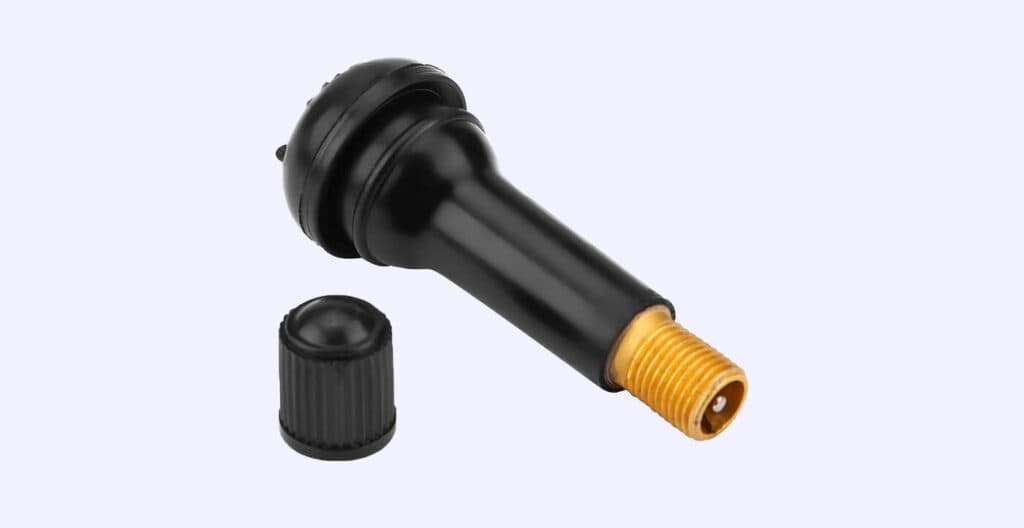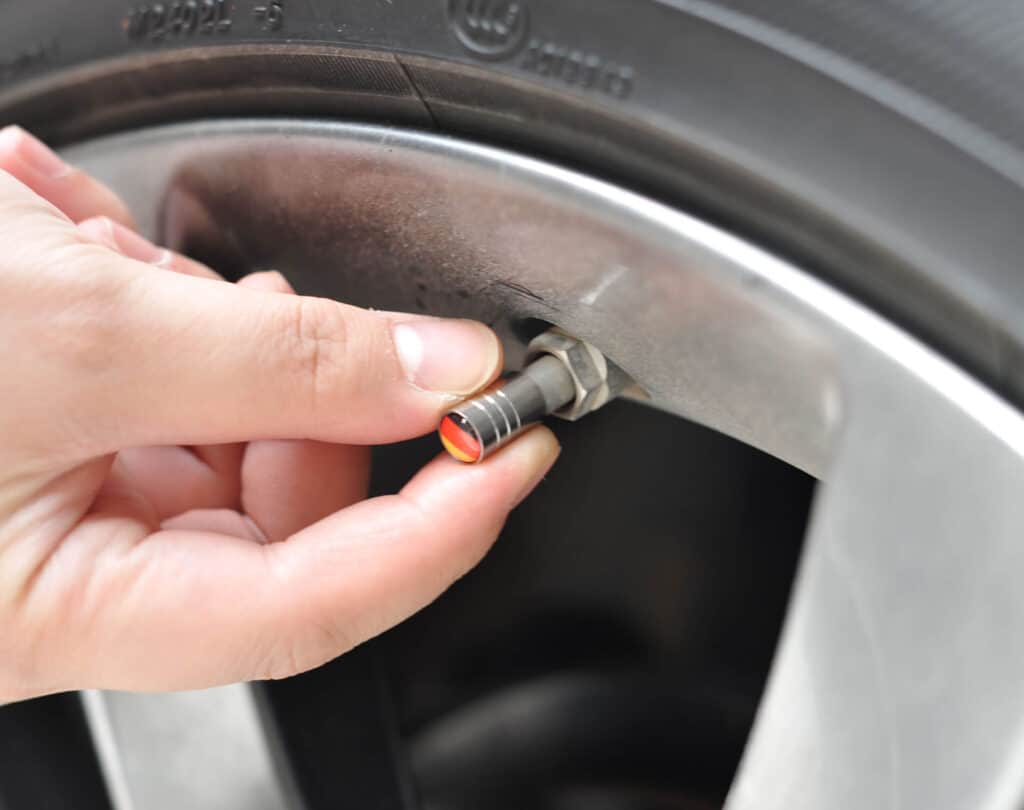Does your vehicle wobble more than a Jell-O mold in an earthquake? The culprit could be your tire valve system! Sit tight as we take a thrilling ride into the world of tire valves.
What is a Tire Valve System?
The tire valve system is like the unsung hero of your car’s tire, allowing air in during inflation, letting it out when needed, and most importantly, keeping it locked in to maintain optimum tire pressure. It’s like the bouncer of your tire’s exclusive air club!
How Much Will it Cost to Replace a Tire Valve System in Canada?
In Canada, replacing a tire valve system isn’t going to empty your piggy bank. You’re looking at around $5 to $10 per valve for the parts, and an additional $20 to $30 for labour. All in all, expect to shell out between $25 and $40 per tire. Labour time? It’s quicker than a squirrel in sneakers – typically just 15 to 20 minutes per tire.

What are the Symptoms of a Faulty Tire Valve System?
If your tire valve system has decided to go off-script, it’ll give you a few telltale signs. Let’s break these down:
• Unusual loss of tire pressure: Picture this: you’ve just pumped your tires to the perfect pressure, and you’re all set to drive, only to find your tire pressure has dropped faster than a lead balloon in a matter of days. This unexplained, frequent drop in tire pressure can be a classic sign that your tire valve system is throwing a tantrum.
• Visible damage or corrosion on the valve: Have you noticed that your valve is looking a bit like it’s seen better days? Perhaps it’s showing signs of physical damage, like cracks or bends, or maybe it’s corroded over time. It’s like spotting a tear on your favorite pair of jeans – a sure sign that something is amiss.
• An audible hiss of air escaping from the valve: Imagine you’re in a library, and you hear an annoying, persistent hiss. No, it’s not an over-enthusiastic librarian shushing you; it might just be air escaping from your tire valve. If you can hear a hiss or notice a slow leak around the valve, it’s shouting out loud that it needs some attention!
These symptoms are your tire valve system’s version of a cry for help. Address them as soon as you can to keep your tires happy and your drive smooth!
How long does a Tire Valve System last?
Tire valve systems are pretty robust – they typically last as long as your tires, which is usually around 5 to 10 years. But remember, like all good things, they do come to an end.
How does a Tire Valve System Become Defective?
Your tire valve system isn’t invincible and can become defective due to a number of reasons:
• Exposure to extreme elements: Just as your skin doesn’t like extreme cold or hot weather, your tire valve system also doesn’t fancy it. Prolonged exposure to harsh weather conditions can lead to the breakdown of the valve system. It’s like a snowman in a sauna, things start to deteriorate!
• Physical damage: If your tire valve system gets hit or clipped while parking or maneuvering around debris, it could get damaged. It’s as if you stub your toe on that pesky coffee table leg!
• Chemical damage: Exposure to road salts or other corrosive materials can cause the valve system to corrode over time. Think about it like putting a metal toy in a sandbox, only the sand is corrosive chemicals and the toy is your valve system. Not a pretty picture!
• Wear and tear: Like most things, tire valve systems are not immune to the passage of time. They’re like that favorite t-shirt from college that gets worn out, despite how much you love and care for it. Regular use, the pressure of holding in air, and the stresses of road travel can lead to them wearing out over time.
How can a faulty Tire Valve System affect tire pressure and safety?
A faulty Tire Valve System can impact your tire pressure and safety in several ways, much like a set of dominoes waiting to tumble:
• Low tire pressure: The primary role of the valve system is to keep the tire inflated to its optimal level. When the system is faulty, air escapes, leading to lower tire pressure. It’s like trying to ride a bike with flat tires!
• Reduced vehicle handling: With low tire pressure, your vehicle’s responsiveness takes a hit. It becomes harder to steer and brake efficiently – essentially, it’s like trying to control a supermarket trolley with a wonky wheel!
• Decreased fuel efficiency: Low tire pressure increases rolling resistance, which means your car will need to work harder, consuming more fuel. It’s akin to running with a backpack full of rocks!
• Increased tire wear: An underinflated tire wears unevenly and faster, leading to a shorter lifespan for your tires. You wouldn’t want to wear out your favorite shoes, would you?
• Risk of tire blowout: Low tire pressure can cause overheating and potentially lead to a tire blowout, especially at high speeds. This is as risky as doing a handstand on a skateboard!

Is it Safe to Drive with a Faulty Tire Valve System?
Picture this: you’re in a canoe, and you spot a small leak. Sure, you could keep paddling, but wouldn’t it be better to address the problem before you end up in an impromptu swimming lesson? A faulty valve system can lead to low tire pressure, which impairs your vehicle’s responsiveness and efficiency. The journey might feel more like navigating a rollercoaster than a peaceful Sunday drive. It’s always best not to gamble with these things.
Furthermore, the plot thickens with a faulty tire valve system. If left ignored, it’s not just about sub-par driving conditions; you’re also risking a potential flat tire or even a blowout at high speeds. Imagine the sudden adrenaline rush when you realize your tire’s given up on you on a busy freeway. It’s the kind of excitement no one wants! So to answer your question, driving with a faulty tire valve system is about as safe as juggling knives. It’s simply not worth the risk. Address the issue, fix it up, and keep the thrills for the amusement parks. Your safety, after all, is priceless!
How Can I Make My Tire Valve System Last Longer?
A little TLC can help your tire valve system go the extra mile. Here’s how:
• Regularly check your tire pressure
• Inspect the valve system for visible damage
• Use valve caps to protect against dirt and debris
Can a mobile mechanic replace this Tire Valve System?
Absolutely, yes! Companies like Uchanics in Canada have taken the convenience of auto repair to a new level. With them, you can have your tire valve system replaced at your home, work, or even while you’re enjoying a lovely day at the park.
Conclusion
Your tire valve system plays a crucial role in the safety and performance of your vehicle. Regular inspections and prompt replacements are key to ensuring a smooth and safe ride. And with the convenience of mobile mechanics, maintaining your tire valve system has never been easier. Remember, a little attention today can save a lot of trouble tomorrow!
Next Steps: Book Your Tire Valve System Replacement Service
The service most frequently booked by those who read this article is Tire Valve System Replacement. Uchanics’ expert technicians make the process even more convenient by bringing the service right to your doorstep. We perform this job at your home or office, covering over 40 cities in Ontario, including Oshawa, Ajax, Toronto, Scarborough, Mississauga, Brampton, and more. Our commitment to excellence has earned us more than 700 glowing 5-star reviews. Choose Uchanics for your Tire Valve System Replacement and experience unparalleled convenience and top-quality service.
